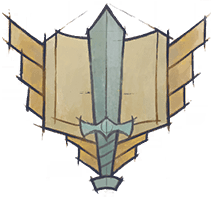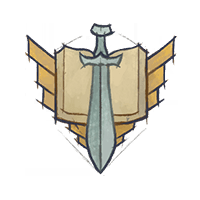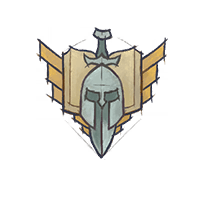Difficulty in Pathfinder: Wrath of the Righteous lets you know about the different difficulty options available before beginning a new game. There are 7 premade difficulty levels that can be chosen. However, you can also decide to edit certain sliders within the chosen difficulty level, allowing you to create a custom difficulty mode.
Besides the game difficulty mode, there are separate sliders on each difficulty mode that allows to tune the Crusade Management Difficulty to your liking.
Pathfinder: Wrath of the Righteous Difficulty Modes

Story
The damage your character suffers from enemies and traps is reduced by 80%. Enemies are extremely weak and cannot critically hit.
Your character will not die after suffering a deadly injury. Instead, they'll fall unconscious until the end of the battle.
If all your characters fall unconscious, the game is over

Casual
The damage your character suffers from enemies and traps is reduced by 60%. Enemies are significantly weak and cannot critically hit.
Your character will not die after suffering a deadly injury for the first time. Instead, they'll be afflicted by the Death's Door condition. If a character with this condition suffers a deadly injury, they will then die.
Resting in a comfortable and safe places removes the Death's Door condition. Your character can still die from an instant death effect, energy drain, poison, or other similar condition.
If your main character dies, the game is over. If a companion dies, you can resurrect them with Raise Dead or a similar Spell - an extremely expensive service unavailable to most adventurers.

Normal
The damage your character suffers from enemies and traps is reduced by 20%. Enemies are weak and inflict reduced damage on critical hits.
Your character will not die after suffering a deadly injury for the first time. Instead, they'll be afflicted by the Death's Door condition. If a character with this condition suffers a deadly injury, they will then die.
Resting in a comfortable and safe place removes the Death's Door condition. Your character can still die from an instant death effect, energy drain, poison, or other similar condition.
If your main character dies, the game is over. If a companion dies, you can resurrect them with Raise Dead or a similar Spell - an extremely expensive service unavailable to most adventurers.

Daring
Your character suffers full damage from enemies and traps. Enemies are slightly weaker and inflict reduced damage on critical hits.
Your character will not die after suffering a deadly injury for the first time. Instead, they'll be afflicted by the Death's Door condition. If a character with this condition suffers a deadly injury, they will then die.
Resting in a comfortable and safe place removes the Death's Door condition. Your character can still die from an instant death effect, energy drain, poison, or other similar condition.
If your main character dies, the game is over. If a companion dies, you can resurrect them with Raise Dead or a similar Spell - an extremely expensive service unavailable to most adventurers.

Core
Your character suffers full damage from enemies and traps. There are more enemies than usual, they have standard power and inflict the usual damage on critical hits.
Your character will die after suffering a deadly injury.
If your main character dies, the game is over. If a companion dies, you can resurrect them with Raise Dead or a similar Spell - an extremely expensive service unavailable to most adventurers.
Choosing this difficulty is NOT RECOMMENDED for the players not familiar with the Pathfinder system.

Hard
Your character suffers full damage from enemies and traps. There are more enemies than usual, they are slightly stronger and inflict the usual damaeg on critical hits. Furthermore, some enemies use additional spells and combat abilities.
Your character will die after suffering a deadly injury.
If your main character dies, the game is over. If a companion dies, you can resurrect them with Raise Dead or a similar Spell - an extremely expensive service unavailable to most adventurers.
Choosing this difficulty is NOT RECOMMENDED for the players not familiar with the Pathfinder system, as well as its implementation in this game.
The enemies will not forgive any mistakes made during combats, and your characters' builds must be no less than perfect.

Unfair
Your character suffers double damage from enemies and traps. There are more enemies than usual, they are extremely strong and inflict the usual damage on critical hits. Furthermore, some enemies use additional spells and combat abilities.
Your character will die after suffering a deadly injury.
If your main character dies, the game is over. If a companion dies, you can resurrect them with Raise Dead or a similar Spell - an extremely expensive service unavailable to most adventurers.
Choosing this difficulty is NOT RECOMMENDED for the players not familiar with the Pathfinder system, as well as its implementation in this game, and those who are not willing to suffer. The enemies will not forgive any mistakes made during combats, and your characters' builds must be no less than perfect.
